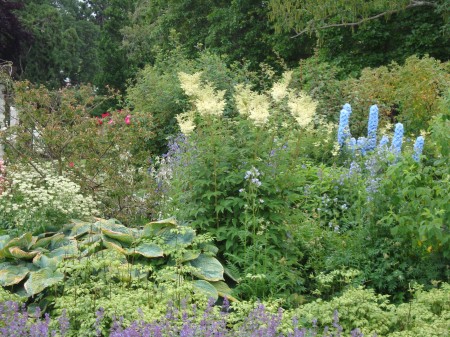The Miracle Herb: Comfrey, Knitbone, or Boneset: Silica and Allantoin are the magic ingredients. Symphytum officinale, or Comfrey, is known by the common names: knitbone, boneset, consolida, nipbone, bruisewort, church bells, and suckers, and allheal. One of its more uncommon names is Abraham Isaac and Jacob: This refers to the changing colours of Comfrey’s flowers, which resemble ‘Church bells’.
Comfrey is a wonderful healer of wounds, and burns. I have used it with great success on burns. For the healing of bones, I have no experience, but Comfrey was used as a bone-healer in times long gone, and there is much to support this in the writings of the old herbalists such as Culpepper.
Comfrey Nutrients: Apart from its healing components, Silica and Allantoin, Comfrey supplies potassium, iron, B12 and Calcium, which make it a wonderful tonic tea.
Comfrey Fertilizer: Comfrey is not just a great soothing tonic for people, it also a tonic for the garden, as it is rich in nitrogen and phosphates: By soaking the leaves in water for several weeks, a nutrient-rich liquid fertilizer is obtained which you can dilute and spray over your vegetable and flower garden. It is good to see Comfrey, which is banned, included in Brenda Little’s list of important garden herbs in her book “Companion Planting in New Zealand”. This fine little book is illustrated by Ken Gilroy and published by New Holland, Auckland, New Zealand, 2000.
When Brenda’s book was published in 2000, Comfrey was already banned. It was banned so that the drug companies could benefit through our being deprived of Comfrey. I believe we should all campaign to defy this ruling, and get Comfrey back into our gardens. It is too valuable as a home remedy, and as a garden nutrient, to be manipulated by the drug companies decision, banned and forgotten.
Comfrey’s common names ‘Knitbone’ and ‘Boneset’ give an indication of Comfrey’s merits as a bone healer. The Way To Use Comfrey For Bone Breakage is to be found in the book ‘The Illustrated Plant Lore: A unique pot-pourri of history, folklore and practical advice’, Guild Publishing, London, 1985.
The author is Josephine Addison, and it is illustrated by Rosemary Wise with a forward by David Bellamy, the famous naturalist and wild-life campaigner.
Was Comfrey Used To Heal Bones and Breakages? : Here is what Josephine has to say about the way Comfrey was used for bone breakages, strains, swellings and bruises:
The method was to pound up a good amount of comfrey root to a pulp. The macerated pulp was then squeezed of its juice, and this juice was applied directly to the affected skin or bone area. For a breakage, the mashed pulp was put into a piece of linen cloth which was wrapped about the breakage. The limb was then put into a splint to stop movement of the limb so that the bone could heal.
The mucilage in Comfrey, is rich in Silica and Allantoin. Both these compounds are great healers: Allantoin is a powerful cell proliferant, and Silica helps in the healing of tissues by hardening and helping to draw all the other necessary elements in for the healing.

